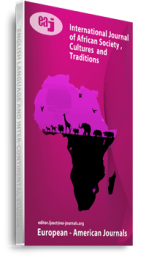As a continent with all kinds of existing and emerging conflicts, Africa needs to invest hugely in conflict prevention, resolution and management in order to move towards the desired goal of integration, political stability and economic growth. Without peace and stability, it is impossible for development to occur. Since the end of colonial rule, the retrogression of many African countries has been traced to conflicts and the failure of extant resolution mechanisms to address the root causes of discontent, injustice and socio-political exclusion. The fact that conflicts now assume transnational and international dimensions has elevated the need for greater collaboration and cooperation among countries in conflict management, especially through the platforms provided by international organizations such as the United Nations (UN) and the African Union (AU). The African Union has been particularly instrumental not only in the identification, resolution and management of intrastate and cross-national conflicts in Africa, but also in the provision of a framework for multilayer co-operation, partnership and integration between governments and multinational actors across the continent. This paper is an attempt to evaluate the performance of the AU in the management of conflicts across the continent. To this end, the interventions of the AU in the conflicts in Burundi and Sudan were used as case studies. Specifically, this paper is of the opinion that indigenous conflict management techniques built upon traditional communication systems should be incorporated in a new approach to conflict management, if the African Union is desirous of impacting meaningfully on regional peace and security.
Keywords: International Organizations, communication, conflict management

